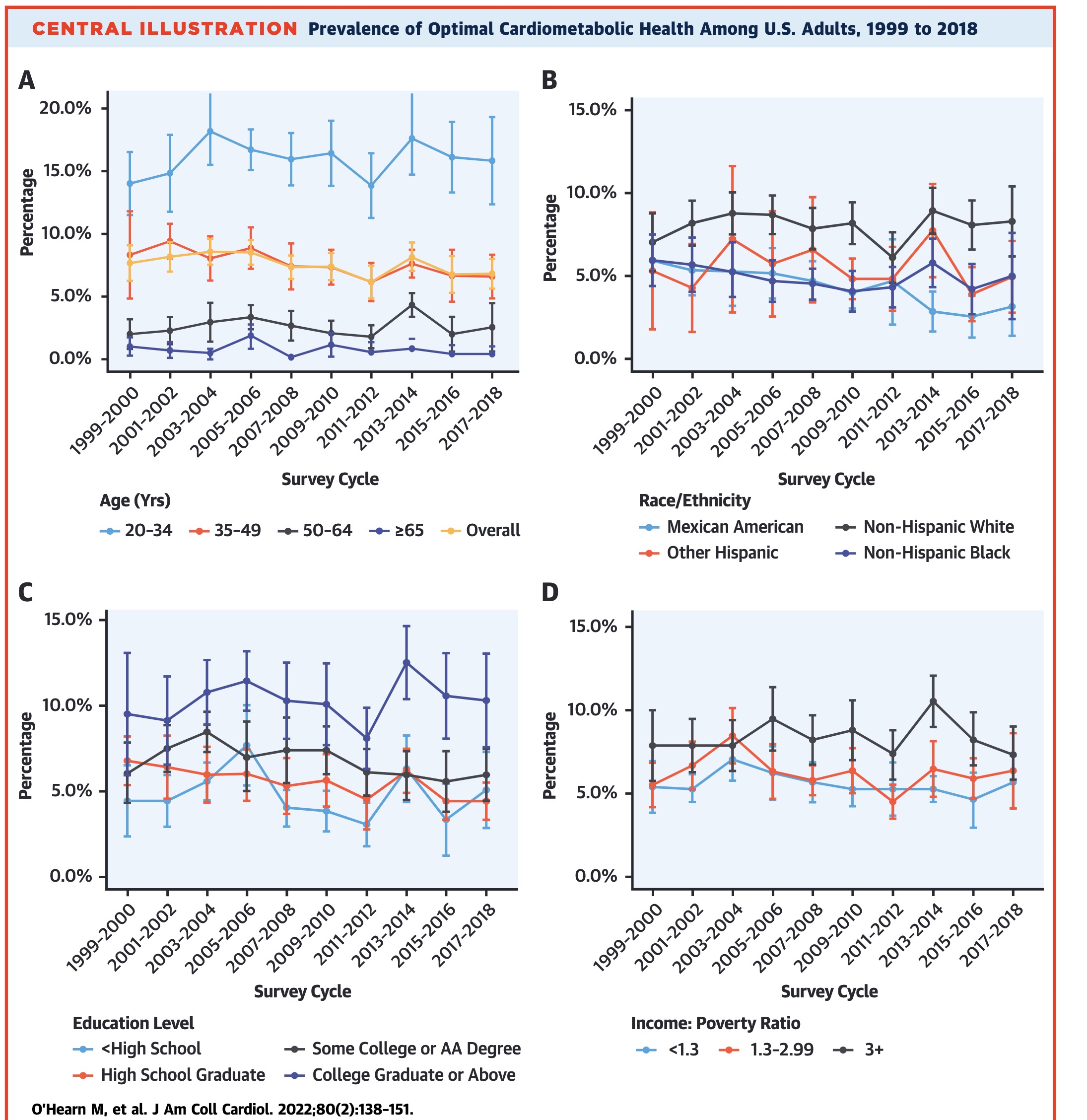TLDR Only 7% of Adults have optimal metabolic health! 93% are compromised. This is the single largest health issue the world knows, costing us billions of dollars per day, and millions of lives needlessly cut short.
Background -Few studies have assessed U.S. cardiometabolic health trends—optimal levels of multiple risk factors and absence of clinical cardiovascular disease (CVD)—or its impact on health disparities.
Objectives -The purpose of this study was to investigate U.S. trends in optimal cardiometabolic health from 1999 to 2018.
Methods - We assessed proportions of adults with optimal cardiometabolic health, based on adiposity, blood glucose, blood lipids, blood pressure, and clinical CVD; and optimal, intermediate, and poor levels of each component among 55,081 U.S. adults in the National Health and Nutrition Examination Survey.
Results - In 2017-2018, only 6.8% (95% CI: 5.4%-8.1%) of U.S. adults had optimal cardiometabolic health, declining from 1999-2000 (P trend = 0.02). Among components of cardiometabolic health, the largest declines were for adiposity (optimal levels: from 33.8% to 24.0%; poor levels: 47.7% to 61.9%) and glucose (optimal levels: 59.4% to 36.9%; poor levels: 8.6% to 13.7%) (P trend <0.001 for each). Optimal levels of blood lipids increased from 29.9% to 37.0%, whereas poor decreased from 28.3% to 14.7% (P trend <0.001). Trends over time for blood pressure and CVD were smaller. Disparities by age, sex, education, and race/ethnicity were evident in all years, and generally worsened over time. By 2017-2018, prevalence of optimal cardiometabolic health was lower among Americans with lower (5.0% [95% CI: 2.8%-7.2%]) vs higher education (10.3% [95% CI: 7.6%-13.0%]); and among Mexican American (3.2% [95% CI: 1.4%-4.9%]) vs non-Hispanic White (8.4% [95% CI: 6.3%-10.4%]) adults.
Conclusions- Between 1999 and 2000 and 2017 and 2018, U.S. cardiometabolic health has been poor and worsening, with only 6.8% of adults having optimal cardiometabolic health, and disparities by age, sex, education, and race/ethnicity. These novel findings inform the need for nationwide clinical and public health interventions to improve cardiometabolic health and health equity.els of risk factors, even in low-risk groups, has serious implications for public health.
Full Text - https://doi.org/10.1016/j.jacc.2022.04.046

